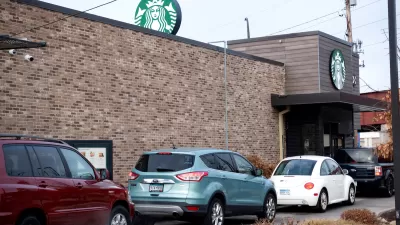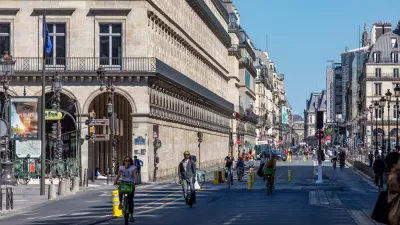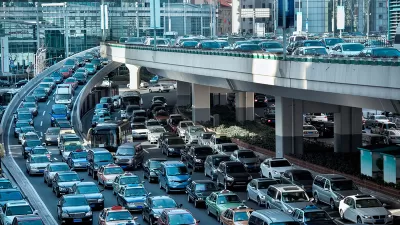Another day, another historic planning-related bill signed into law in the Golden State.

In 2021, California Governor Gavin Newsom vetoed a bill, AB 1238, that would have decriminalized jaywalking in the state, in a major setback for the cause of making streets safer for noon-vehicular modes of transportation.
In 2022, Gov. Newsom signed a similar bill—AB 2147, also known as “The Freedom to Walk Act,” authored by the same state legislator, Assembly Member Phil Ting (D-San Francisco). The law takes effect of January 1, 2023.
Colleenn Shalby reports on the new law for the Los Angeles Times:
Under the new law, pedestrians would be able to legally cross the street outside of designated intersections without the threat of a hefty citation “unless a reasonably careful person would realize there is an immediate danger of collision with a moving vehicle or other device moving exclusively by human power.”
Shalby notes that jaywalking laws grew out of auto industry lobbying in the early 20th century—one of the most obvious signs of the growing car-centric planning and automobile dependence that continues to dominate the American built environment.
Data shows that jaywalking laws in the 21st century have disparate impacts for low-income individuals and people of color. “Data cited by Ting’s office from the California Racial and Identity Profiling Act shows that Black Californians are up to 4.5 times more likely to be stopped for jaywalking than those who are white,” writes Shaby.
The governor’s signature on AB 2147 follows shortly after the ink dried on two other historically significant planning reforms: AB 2097, which remove parking requirements near transit stops, and AB 2011, which made affordable housing developments on commercially zoned properties legal by right.
FULL STORY: Jaywalking is decriminalized in California under new law

Planetizen Federal Action Tracker
A weekly monitor of how Trump’s orders and actions are impacting planners and planning in America.

Maui's Vacation Rental Debate Turns Ugly
Verbal attacks, misinformation campaigns and fistfights plague a high-stakes debate to convert thousands of vacation rentals into long-term housing.

Restaurant Patios Were a Pandemic Win — Why Were They so Hard to Keep?
Social distancing requirements and changes in travel patterns prompted cities to pilot new uses for street and sidewalk space. Then it got complicated.

In California Battle of Housing vs. Environment, Housing Just Won
A new state law significantly limits the power of CEQA, an environmental review law that served as a powerful tool for blocking new development.

Boulder Eliminates Parking Minimums Citywide
Officials estimate the cost of building a single underground parking space at up to $100,000.

Orange County, Florida Adopts Largest US “Sprawl Repair” Code
The ‘Orange Code’ seeks to rectify decades of sprawl-inducing, car-oriented development.
Urban Design for Planners 1: Software Tools
This six-course series explores essential urban design concepts using open source software and equips planners with the tools they need to participate fully in the urban design process.
Planning for Universal Design
Learn the tools for implementing Universal Design in planning regulations.
Heyer Gruel & Associates PA
JM Goldson LLC
Custer County Colorado
City of Camden Redevelopment Agency
City of Astoria
Transportation Research & Education Center (TREC) at Portland State University
Jefferson Parish Government
Camden Redevelopment Agency
City of Claremont





























